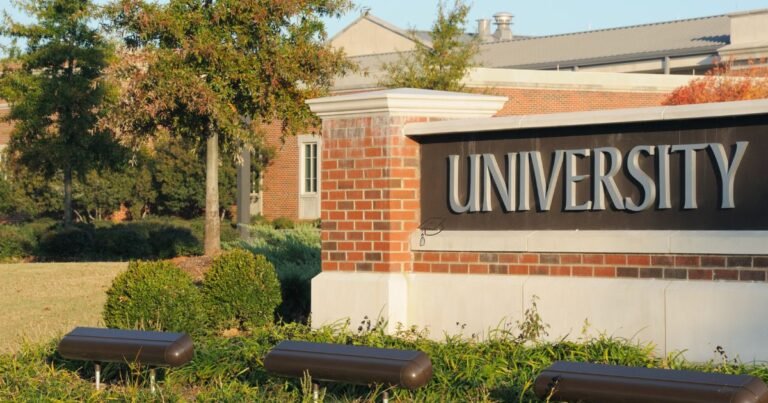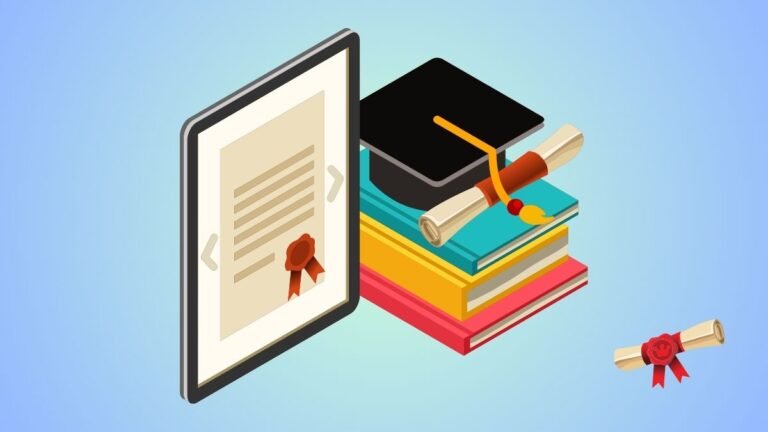The most asked question by students is, ‘How will avoiding student loans help set the tone for net taking on debt for the rest of your life?’ The answer is simple: Avoiding student loans gives students financial freedom, improves their financial habits, and allows them to depend on the present amount and start their careers with a loan-free mind and status.
How To Avoid Student Loans?
If you want to get rid of student loans and depend on your present financial resources, then knowing how to avoid student loans is necessary. The steps for avoiding student loans in detail are mentioned below:
- Apply for scholarships
- Benefit from study programs
- Apply for a part-time job
- Utilize the budget in a better way
- Admission to community college
Apply for scholarships
The best and easiest way to avoid student loans is to apply for scholarships. However, there are some grade requirements that the student has to fulfill before applying for scholarships. So, if you never want to rely on a student loan, then you must prepare yourself in the very first school days to pass the scholarship test and related requirements.
Benefit from study programs
The government offers several study programs, and some are from private institutes. You can benefit from these study programs to meet your graduation expenses without taking out debt. Likewise, scholarships and study programs have some requirements from the government side that students have to fulfill.
Apply for a part-time job
If you’ve no good grades and opportunities to apply for scholarships and study programs, then a part-time job is your greatest choice. There are a lot of private and government jobs based on higher education that you can earn and can easily fulfill your college and university graduation expenses.
Utilize the budget in a better way
Students can also make a budget plan according to their financial resources and college expenses to avoid student loans. The budget plan helps students decrease their expenses according to the budget. Likewise, students can save their college money from the budget in advance.
Admission to community college
Almost every city has a community college that offers free and affordable graduation to all students. So, if you have few expenses and don’t want to take on the student loan headache, then you must go to a community college. Community colleges operate on government funds and don’t charge high fees from students like private institutions.
Impacts Of Avoiding Student Loans
Avoiding student loans positively and negatively impacts students’ and countries’ economies. So before deciding on boycotting student loans, one must know the positive and negative impacts of this. A list and detailed explanation of the impacts of avoiding student loans is below:
Positive
Firstly, see the positive impacts of avoiding student loans:
- Financial freedom
- No loan interest and fees stress
- Career growth
- Improves financial habits
- Encourage financial aid programs
Financial freedom
One of the biggest positive impacts of boycotting student loans is financial freedom. When students avoid student loans, there is no headache for loan applications, payments, repayments, fees, and loan interest. Students can manage their college and university expenses by themselves and according to their financial sources.
No loan interest and fees stress
Another positive impact of avoiding student loans is that there is no issue with loan repayments, fees, interests, and loan duration. Students can easily manage their budgets and are fed from the loan fees that usually increase each year, and loan conditions are also changed by the government.
Career growth
After avoiding student loans, students can focus on their career growth without worrying about loan repayments and interest. However, with student loans, there are rare chances of career growth within a limited time as the student has to repay the loan in a fixed duration.
Improves financial habits
Avoiding student loans also improves students’ financial habits, as they have to depend only on their savings and expenses. It also helps students become money savers, use their budget wisely, make a budget plan, have efficient spending habits, and start saving.
Encourage financial aid programs
When students reduce their student loans, they move toward financial aid programs. Likewise, students are encouraged to get good grades for financial ads. The student financial aid programs are all from the government, and only students with good grades are eligible for them.
Negative
Besides the positive impacts, avoiding student loans has multiple negative impacts. The negative impacts of avoiding student loans are below:
- Limited educational options
- The increased educational financial burden
- Delay in graduation
- Decrease future borrowing ability
- Increase in academic feeses
Limited educational options
When students avoid student loans, they are left with limited educational options. Due to the limited educational resources, some students leave their education and move towards low-paying jobs and wages. For those, student loans are a good option, so they complete their graduation and repay the loan in the future.
The increased educational financial burden
Student loans help the students and the government decrease their educational and financial burden because the educational expenses are divided equally between the students and the government. Likewise, without loans, educational institutes would stop offering many benefits to students and teachers.
Delay in graduation
Most students avoid student loans due to the fear of repaying them, and limited sources for loan repayments delay their graduation. Students delay their education to save money and enter college again with the college fees and good financial resources.
Decrease future borrowing ability
Avoiding student loans decreases the student’s borrowing ability in the future, which affects the economy and private and government loan provider institutes. Moreover, the students do not even apply for the loan in difficult situations and try to handle the circumstances individually.
Increase in academic feeses
Student loans help decrease academic fees the most because most of the loans are from the government. When students boycott the loans, the economy suffers. As a result, colleges and similar educational institutes increase their academic and tuition fees to cover the institute’s expenses.
Why Students Should Boycott Loans?
Several reasons answer the query ‘why students should boycott loans’. Some of the reasons for boycotting student loans are given below:
- Avoid the future financial burden
- Budget-friendly education
- Use creative ways to meet expenses
- Not depend on loans in the future
Avoid the future financial burden
Students should avoid loans to avoid the future financial burden, which they need to pay in the future in the student loan, feeses, and interest forms. Likewise, the loan also puts a burden on the students and affects their financial growth in the future.
Budget-friendly education
Another reason to avoid student loans is that students must choose a budget-friendly education and save money for the future. However, with loans, students forget their budget and spend on unnecessary things, leading to a greater value of interest and loan fees.
Use creative ways to meet expenses
Students should explore creative ways of earning and meeting college expenses through study instead of relying only on student loans, which they have to repay with fees and a double amount. Creative ways to meet college expenses are by making a budget plan, selling skills, and finding budget-friendly resources.
Do not depend on loans in the future
When students start relying on loans from their teenage, they will surely use the debts in the future. So, to avoid this bad thing, students must boycott the loans and spend the money according to the budget. To follow this, students will choose the loan only in serious situations and when they can repay it early.
Debt Free Education
Avoiding student loans leads to debt-free education, which is helpful for part-time workers and students. Multiple debt-free education programs are the best options for students. Likewise, some colleges also have options for part-time jobs, which are best for talented students.
Debt-free education is better than simple education because colleges have strict rules that students must follow while applying for debt-free education. This education is perfect for professionals and high-grade obtaining students. But if you’re not eligible to meet this criterion, then you must go with the affordable education path and start saving early.
How To Earn Debt-Free Education?
There are multiple ways of earning debt-free education, and some of the ways are mentioned and explained below:
- Attend public college
- Attend online classes
- Earn scholarships
- Make a budget-friendly plan
Attend public college
Public colleges are the best options for students to make their education debt-free. They don’t charge extra fees and also offer the chance of being selected as job holders in the same college.
Attend online classes
Online and Zoom classes are another best choice for earning a debt-free education. In online classes, students can do self-study or pay fewer fees than attending college. Besides this, the online sessions also decrease the hostel and travel expenses.
Earn scholarships
Earning a scholarship is a great option for enjoying a debt-free education. In scholarships and education aid programs, students’ educational expenses are the government’s and colleges’ responsibility. However, students have to apply for scholarships during their school days.
Make a budget-friendly plan
You can make a budget-friendly plan according to your monthly savings and educational spending. The plan will greatly help you complete your graduation within limited resources. Moreover, a budget-friendly plan will be the best option for you to achieve to achieve debt-free education, whether a bachelor’s or a master’s degree.
Alternative Of Student Loans
There are some alternative student loans that the students can use instead of the loans. Let’s see these alternative options:
- Earn scholarships
- Apply for education aids
- Find part-time job
- Use money on the budget plan
- Prefer public education
- Online sessions
- Make saving plans
- Benefit from military programs
- Use community support
Financial Habits For Students
Students have to adopt financial habits to save money for the future and get rid of loans. The easy-to-follow financial habits for the students are mentioned below:
- Set up goals
- Create a budget
- Use scholarships
- Prefer savings
- Cut down extra expenses
- Use money wisely
- Prefer self-study
- Apply for the part-time job
- Pay bills before the late fees
FAQs
How does avoiding student loans help you avoid taking the debt for the rest of your life?
Avoiding student loans helps students set the tone for not taking on debt for the rest of their lives, as this technique helps them maintain their financial habits and responsibilities in the present.
Did avoiding student loans benefit students?
Of course, avoiding student loans benefits students by allowing them to not depend on the loan for the rest of their lives, managing their financial issues, and avoiding loan interest.
Is it possible to graduate without student loans?
Of course, it’s possible to graduate without a student loan and to use the financial aid, scholarships, job salary, and work-study programs.
How does avoiding student loans give financial success?
Avoiding student loans leads to financial success because students do not have to repay the loan, pay the loan interest and fees, and start their careers with loan-free status.
When were student loans introduced?
The National Defense Educational Act (NDEA) introduced the first-ever federal student loan in 1958.
How many students get student loans?
About 30 to 40 percent of students (including undergraduate, graduate, and professional students) get student loans annually.
Conclusion
We can finalize the ‘How will avoiding student loans help set the tone for not taking on debt for the rest of life’ topic by saying that student loans have both good and bad effects. Student loans are best for the middle-income group and students who can pay the loan within the given duration.
On the other hand, loans are not a good option for students who can apply for scholarships, have a good budget plan, want to grow their careers, and are not able to repay the loan within a given duration. However, it is recommended that students never rely on loans but try to find alternative options if possible.






One Comment